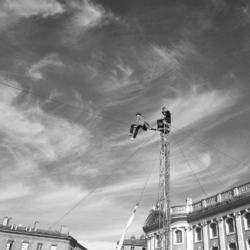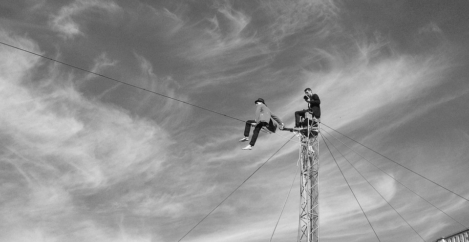June 2, 2020
Working life set to become more precarious and unequal
 The future of work is likely to be even more precarious and unequal, according to a new research review from academics at Durham University Business School, Kings College Business School and University Paris-Dauphine. Dr. Jeremy Aroles, Assistant Professor in Organisation Studies at Durham University Business School, alongside colleagues, Dr. Nathalie Mitev (King’s College) and Professor François?Xavier de Vaujany (University Paris-Dauphine), reviewed a wide range of research related to working life new work practices and summarised this into a number of predictions for the future of work. This research review paper was published in the journal ‘New Technology, Work and Employment’, which is open access throughout June.
The future of work is likely to be even more precarious and unequal, according to a new research review from academics at Durham University Business School, Kings College Business School and University Paris-Dauphine. Dr. Jeremy Aroles, Assistant Professor in Organisation Studies at Durham University Business School, alongside colleagues, Dr. Nathalie Mitev (King’s College) and Professor François?Xavier de Vaujany (University Paris-Dauphine), reviewed a wide range of research related to working life new work practices and summarised this into a number of predictions for the future of work. This research review paper was published in the journal ‘New Technology, Work and Employment’, which is open access throughout June.
This review paper draws from prominent research into ‘new work practices’ from the over the past thirty years. These new work practices refer to a wide range of work activities based on flexibility and diversification, from remote work to collaborative entrepreneurship to digital nomadism.
The researchers reviewed key work practices through four separate dimensions:
- What we perceive as working practices: Types of employment, entrepreneurship, freelance work etc.
- What we perceive to be a workplace: The rise of home working, hot desking and shared offices
- Individuals and organisations: How and when people work, flexible working hours, co-employment and contract work
- Power and control in work: The power relationship between those in management and employees whether they be freelance, permanent staff or part of the gig economy.
The researchers suggest we are set to see an increase in new modes of employment, including zero-hour contracts and other forms of unsecure employment, a growth in popularity of online labour platform workforces; the development of crowd-based and collaborative forms of entrepreneurship and the increased emergence of new spatial work arrangements (coworking spaces etc.) – all of which fall outside the normal realm of a ‘formal organisation’, and blur the boundaries between work and private life.
[perfectpullquote align=”right” bordertop=”false” cite=”” link=”” color=”” class=”” size=””]It is likely we’ll see an increase in power to management and organisations as well as lack of security and short-term orientations linked to new forms of work[/perfectpullquote]
The researchers also suggest that home and virtual offices are likely to be key components of the new world of work, with a rise in those who work from home and from non-traditional workplaces (i.e. restaurants, coffee shops), and those who work on the go, for instance conduct work on their commute.
In terms of the relationship between individuals and the organisation, the researchers suggest that there will be an increase in flexibility of employment, which includes both full-time and part-time workers in an organisation, co-employment (employment mediated by a recruiting agency) and contract work (short-term, project-based, hourly-paid). Flexible working times and hybrid forms of work, such as digital nomadism, are also set to rise.
The academics suggest that it is likely we’ll see an increase in power to management and organisations also, due to the precarity, lack of security and short-term orientation that lie at the heart of these new work configurations.
Dr. Jeremy Aroles says, “Dr. Aroles says, “Globalisation, economic volatility and technological changes have been the catalyst for a number of changes to the wider workplace in recent years. The impact of COVID-19 has called into question this globalisation, created further economic volatility, and forced millions of workers to work from home and further utilise technologies, accelerating the transition into a new world of work further. This ‘new’ world of work simply repeats asymmetrical power relations and inequalities that characterise current work activities. The changes only exacerbate even further disparities, inequalities and precarity in employment.”
The researchers suggest it is important to continue engaging with these four dimensions to understand the ways in which changes to the world of work occur at different levels – micro, meso and macro, but also social, economic or political – and unsettle work practices, their spaces and tempo, forms of collective action as well as power relations and dynamics.
Image by ma_esch
















